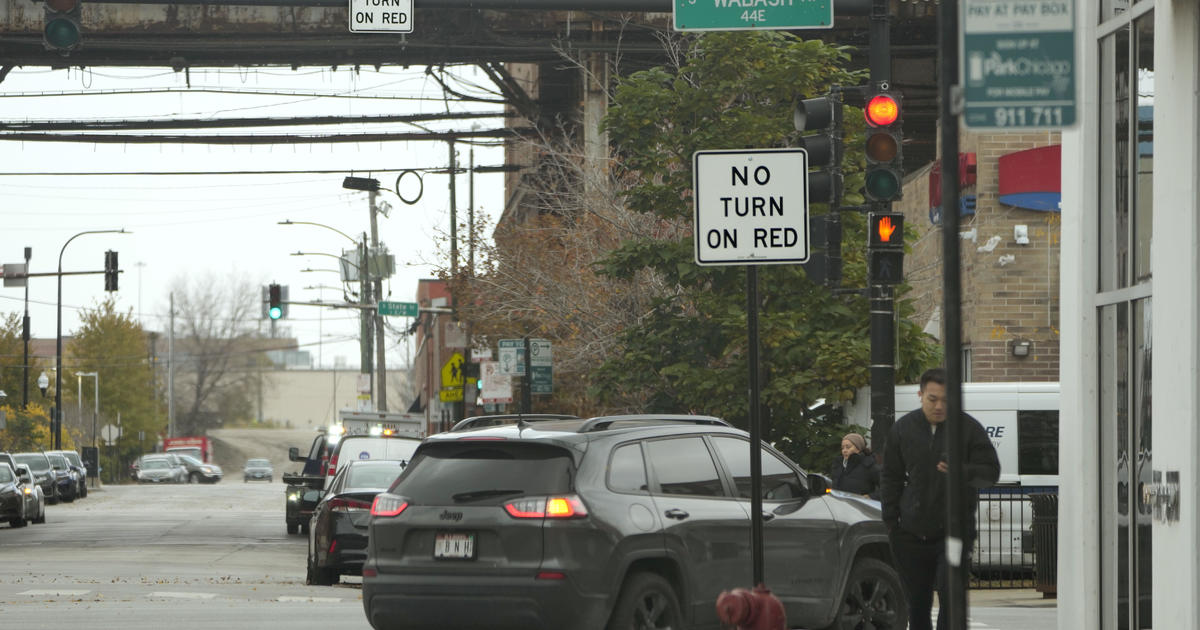Sophee Langerman was on her way to a bicycle safety rally in Chicago's Lakeview neighborhood in June when a car turning right rolled through a red light and slammed into her bike, which she was walking off the curb and into the crosswalk.
The car was moving slowly enough that Langerman escaped serious injury, but the bicycle required extensive repairs. To Langerman, it's another argument for ending a practice that almost all U.S. cities have embraced for decades: the legal prerogative for a driver to turn right after stopping at a red light.
A dramatic rise in accidents killing or injuring pedestrians and bicyclists has led to a myriad of policy and infrastructure changes, but moves to ban right on red have drawn some of the most intense sentiments on both sides.
Washington, D.C.'s City Council last year approved a right-on-red ban that takes effect in 2025. New Chicago Mayor Brandon Johnson's transition plan called for "restricting right turns on red," but his administration hasn't provided specifics. The college town of Ann Arbor, Michigan, now prohibits right turns at red lights in the downtown area.



I live in Seattle. We implemented the 25mph rule and it does seem to actually be helping. This is after a lot of attempts at improving pedestrian safety failed to have any effect. It's irritating because it seems like it takes forever to drive anywhere in this city, and there are definitely a lot of corners cut in infrastructure that could improve safety—including very simple things like adding more marked crosswalks and stop signs at uncontrolled intersections—so I consider it a mixed bag overall.